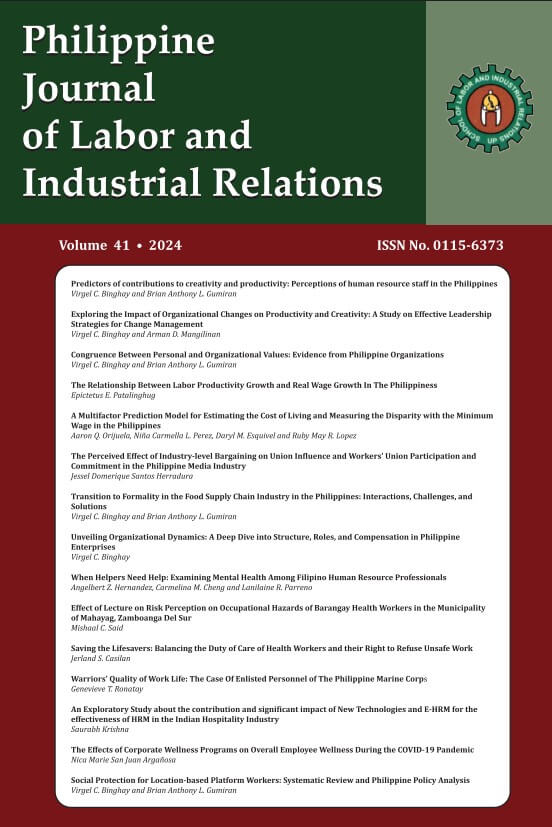Transition to Formality in the Food Supply Chain Industry in the Philippines: Interactions, Challenges, and Solutions
Abstract
The food supply chain (FSC) sector in the Philippines is an essential and significant contributor to the economy. However, there are still challenges on how the sector can contribute to decent work, given that workers in the sector and the sector itself are declining to informality.
This study aims to describe the food processing sector’s supply chain, identify the constraints, and determine measures and strategies to address these issues in the FSC framework context and the International Labour Organization Transition from the Informal to the Formal Economy Recommendation 2015 (R204).
With the growing participation of MSMEs in the supply chain, this study also presents how MSMEs can access and be part of the food processing sector’s supply chain in this growing competitive environment. This study draws on the interviews conducted with representatives from various sectors and desk research as a qualitative case study. The study identifies vital FSC actors and interactions among them. A detailed discussion of FSC challenges and proposed solutions, including specific strategies for MSMEs and small holder farmers and fishers, were discussed.


